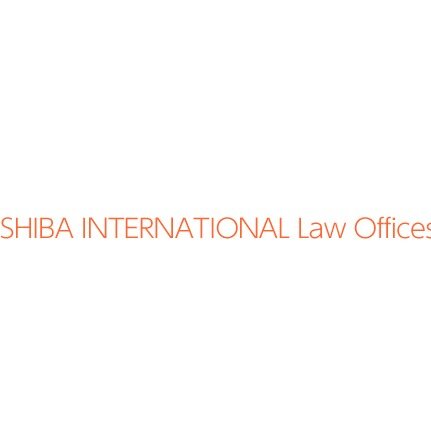Best Merger & Acquisition Lawyers in Tokyo
Share your needs with us, get contacted by law firms.
Free. Takes 2 min.
List of the best lawyers in Tokyo, Japan
About Merger & Acquisition Law in Tokyo, Japan
Mergers and acquisitions (M&A) in Tokyo, Japan are governed by a complex body of laws and regulations that involve both domestic statutes and international legal standards. The landscape of M&A in Japan is characterized by unique features that stem from its corporate culture, legal procedures, and economic policies. The regulatory framework includes laws such as the Companies Act, the Anti-Monopoly Act, and the Financial Instruments and Exchange Act. Tokyo, as a global financial center, sees a significant amount of M&A activity, which is often facilitated by large law firms and financial institutions with expertise in this area.
Why You May Need a Lawyer
Seeking legal advice is crucial in M&A transactions for various reasons. A lawyer can help ensure compliance with regulatory requirements, conduct thorough due diligence, negotiate terms, and draft and review contracts. Lawyers also play a pivotal role in advising on structuring deals to optimize tax and financial implications and handling post-merger integration issues. Engaging a legal professional is essential to navigate the complexities of cross-border transactions, protect intellectual property rights, and manage employee transfers.
Local Laws Overview
Several key aspects of local laws are particularly relevant to M&A in Tokyo. The Companies Act outlines the procedures for various types of corporate restructuring, including mergers, acquisitions, and demergers. The Anti-Monopoly Act is concerned with maintaining fair competition and requires pre-merger notification for large-scale transactions to prevent monopolistic behavior. The Financial Instruments and Exchange Act regulates securities transactions and disclosure requirements in M&A. Other pertinent laws may include the Industrial Competitiveness Enhancement Act and various tax laws that impact transaction structuring.
Frequently Asked Questions
What are the types of merger methods available under Japanese law?
Under Japanese law, the primary methods of mergers are absorption-type mergers and consolidation-type mergers. Each type has its own legal and tax implications that must be considered.
Do I need approval from the Japan Fair Trade Commission (JFTC) for my M&A transaction?
Large-scale M&A transactions may require pre-merger notification and approval from the JFTC to ensure compliance with the Anti-Monopoly Act.
Are there any restrictions on foreign investment in Japanese companies?
Foreign investments in certain industry sectors may be subject to restrictions or screening procedures to protect national security and other public policy interests.
What is the role of due diligence in M&A transactions?
Due diligence is a critical process that involves a comprehensive review of the target company's business, legal, financial, and operational aspects to identify any potential risks or liabilities.
How is the purchase price in an M&A transaction determined?
The purchase price can be determined through negotiations between the parties, based on financial metrics, asset valuations, and other relevant factors.
What are common deal structures used in M&A in Japan?
Common deal structures include share purchases, asset purchases, and mergers. Each structure has specific legal and tax implications that should be carefully evaluated.
What are the tax implications of an M&A transaction in Japan?
Tax implications depend on the deal structure and can involve corporate tax, capital gains tax, registration and license tax, and stamp duties, among others.
Can employees be transferred in an M&A transaction?
Employees can be transferred in an M&A deal, but such transfers may be subject to the regulations of the Labor Standards Act, and employees' consent may be required.
What post-merger integration issues may arise after the deal is closed?
Post-merger integration can include cultural assimilation, combining operations, systems integration, and aligning corporate strategies and goals.
How are minority shareholders protected in M&A transactions in Japan?
Minority shareholders are protected by various provisions in the Companies Act, including appraisal rights and requirements for shareholder approval for certain transactions.
Additional Resources
Additional resources available to those seeking legal advice in M&A in Tokyo include the Japan Fair Trade Commission for competition-related inquiries, the Tokyo Stock Exchange for information on publicly listed companies and disclosure requirements, the Ministry of Economy, Trade and Industry for industrial policy and regulation, and organizations such as the Japan External Trade Organization (JETRO) for foreign investment guidance.
Next Steps
If you require legal assistance in M&A, the next steps include identifying and reaching out to a reputable law firm with expertise in M&A in Japan. It is advisable to interview multiple attorneys to find one with the appropriate experience and a track record of successfully navigating M&A transactions. Prepare a summary of your transaction goals and gather any relevant documents before your initial consultation to facilitate an efficient and thorough advisory process.
Lawzana helps you find the best lawyers and law firms in Tokyo through a curated and pre-screened list of qualified legal professionals. Our platform offers rankings and detailed profiles of attorneys and law firms, allowing you to compare based on practice areas, including Merger & Acquisition, experience, and client feedback.
Each profile includes a description of the firm's areas of practice, client reviews, team members and partners, year of establishment, spoken languages, office locations, contact information, social media presence, and any published articles or resources. Most firms on our platform speak English and are experienced in both local and international legal matters.
Get a quote from top-rated law firms in Tokyo, Japan — quickly, securely, and without unnecessary hassle.
Disclaimer:
The information provided on this page is for general informational purposes only and does not constitute legal advice. While we strive to ensure the accuracy and relevance of the content, legal information may change over time, and interpretations of the law can vary. You should always consult with a qualified legal professional for advice specific to your situation.
We disclaim all liability for actions taken or not taken based on the content of this page. If you believe any information is incorrect or outdated, please contact us, and we will review and update it where appropriate.













